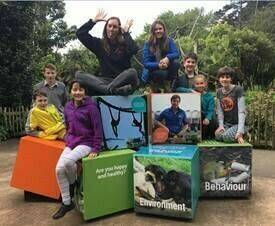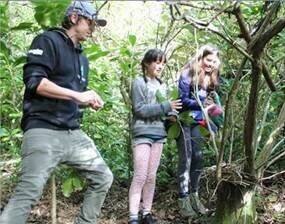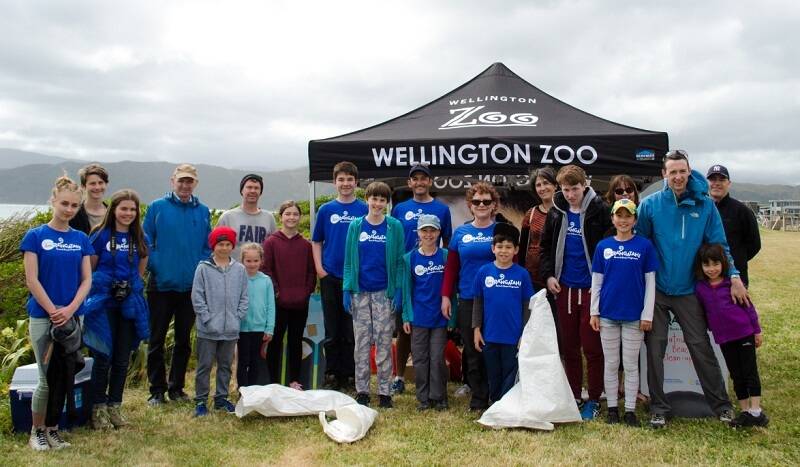Update on Wellington Zoo’s Rangatahi Roots & Shoots Programme
The New Zealand National Commission provided minor grant funding to Wellington Zoo’s Rangatahi Roots & Shoots programme. Sarah Morris provides an update on how the pilot programme is going so far.
Roots and Shoots
As part of the Zoo revolution we have been piloting a Rangatahi Roots & Shoots for young people who are passionate about animals, people and the environment (A.P.E.). Because these three things are vital to all of us, they can be used as a common building block to unite communities.
The rangatahi participate in a variety of activities both inside and outside of the Zoo. Participants get the opportunity to learn about many aspects of our Zoo, while the Zoo benefits from having access to a group of young people with energy, motivation and a genuine interest in taking action on the mounting issues their generation face.


The rangatahi come together fortnightly to work on an initiative using Dr Jane Goodall’s signature four-step model of engagement. Having observed and mapped their local environments, the group decided on take action by initiating a beach clean-up with a focus on removing one-use plastics. They collectively agreed on Seatoun Beach because five of the rangatahi attend Kura Kaupapa o Mokopuna which is located right beside it, evoking a sense of place that is meaningful to them. They designed tee-shirts, created and distributed posters, gained confidence by raising awareness around town and set up a Facebook page.
The Beach clean-up on Sunday 19 November was a roaring success (small and perfectly formed) with four huge sacks of tiny bits of rubbish collected, sorted and recycled where possible, and in doing so helping to save marine life and diverting waste from landfill. We are the ones proudly rocking our new ethically sourced blue tee-shirts with the UNESCO logo that our rangatahi designed.
The next step is growing our programme to include more young people from diverse backgrounds. We notice a lot of young people in our community from a variety of ethnicities and would like them to join our programme so that they too can experience the sense of well-being and happiness that come from actively engaging with A.P.E.
Our rangatahi identified barriers to inclusion that include upfront participation costs (annual Zoo entry, tee-shirts) and public transportation costs. The New Zealand National Commission for UNESCO grant helps us to promote the programme, get some training on best practice for working with these young people and ensures that rangatahi who would like to, or would benefit from participating, have the opportunity to do so in an inclusive and welcoming environment.

